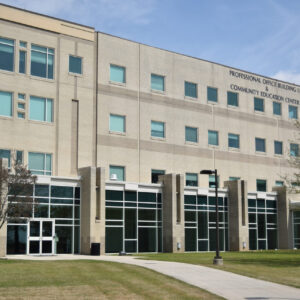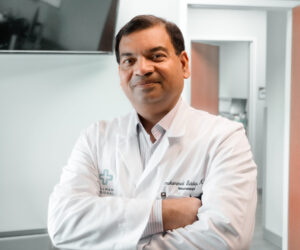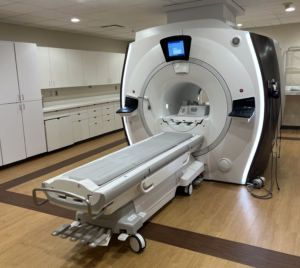
Things to Remember About Memory Loss
Previously published in Cullman Senior Magazine, Summer 2022
The Comprehensive Neurology Care Clinic at
Cullman Regional delivers an advanced level of care.
Think of the last time you misplaced something. We’ve all done it—phone, car keys, TV remote— sometimes things just seem to disappear. Many times these are simply signs of aging, a busy lifestyle or stress, but it is easy to get concerned when you start to forget things more than usual. Maybe it’s something simple like the day of the week, or something personal like a loved one’s birthday. There may be days where it seems like just about everything is slipping your mind, and that can be scary.
WHAT CAUSES MEMORY LOSS
There are many potential causes of memory loss, and several of them are treatable. Memory loss, also known as Dementia or memory impairment,can be caused by neurological disorders such as Alzheimer’s, Parkinson’s and stroke. Psychological issues like anxiety and depression can cause memory loss. So can Vitamin B12 and Vitamin B1 deficiency. Even poor hearing, vision, insomnia, and sleep apnea can lead to memory impairment. Alcohol consumption can also have negative effects on memory.
“Keeping a healthy lifestyle is the best way to maintain a good memory. Eating the correct foods, having a daily routine, sleeping enough and exercising will all help tremendously when it comes to memory,” said Cullman Regional Medical Group neurologist Dr. Muhammad Siddiqi.
TYPES OF MEMORY LOSS
Before you make plans to diagnose or treat memory loss, it is important to understand the different types of memory loss. Not all types can be treated the same way, or by the same healthcare providers. Some require neurologists. Others are better suited for psychiatrists or even nutritionists.
“See your primary care provider first,” Dr. Siddiqi said. “They will be able to point you to a specialist based on your needs.”
There are four types of Dementia which should be evaluated and treated by neurologists. Personal hygiene is often an issue for sufferers of Dementia.
Alzheimer’s Dementia is caused when the brain produces an abnormal protein that inhibits signals from reaching the proper cells.
“Think of it like a light switch and light bulb. If you flip the switch, but the wire to the bulb has been cut, the light bulb will not turn on. It is the same with Alzheimer’s,” Dr. Siddiqi said.
Basically, the person’s memory is there, it just can’t be accessed by them.
Frontotemporal Dementia is a bit of a mystery. According to Siddiqi, no one really knows why it happens. This form of Dementia occurs when the frontal and temporal lobes of the brain shrink faster than in the normal aging process. These lobes are responsible for decision-making, speech, memory and processing what we hear.
People suffering from this form of Dementia have trouble making decisions and experience personality changes. Anything from choosing what to order at a restaurant, to remembering how to dress themselves can be affected. They may also experience issues speaking coherently.
Lewy Body Dementia, often associated with Parkinson’s disease, occurs when proteins called Lewy Bodies are deposited in brain cells. People with this form of Dementia often experience visual hallucinations along with memory loss. These patients may also have other signs and symptoms of Parkinson disease.
Vascular Dementia occurs after a person has had multiple strokes and sustained damage to their brain which is visible on an MRI. This form of memory loss is treated by treating the stroke that caused it.
DEMENTIA DIAGNOSIS
Dementia diagnosis is considered a diagnosis of exclusion. This means that the form of memory loss a patient is suffering from may only be diagnosed by determining that all other causes are not applicable. These diagnoses are thorough and can be time consuming. Because of this, Dr. Siddiqi recommends seeing a primary care provider first, to be referred to the correct specialist.


